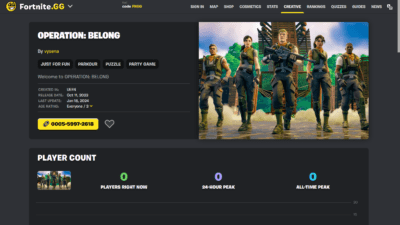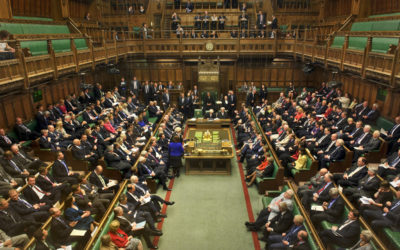Government must take urgent action over Deepcut recommendations
ForcesWatch press release
With the new inquest verdict into the death of Cheryl James at Deepcut, ForcesWatch is calling on Ministers to implement important recommendations for young recruits made in 2005.
Cheryl James, who was 18, was found dead with a bullet wound in 1995 at the Princess Royal Barracks, Deepcut, Surrey. She was one of four young recruits to die in similar circumstances at the army barracks between 1995 and 2002.
All four were undertaking armed guard duty when they died and two were under the age of 18.
An initial inquest into the death of Private James recorded an open verdict. As the original investigation and inquest were judged to be highly inadequate, a second inquest was ordered by the High Court, and took place between February and April this year in Woking, after many years of campaigning by the family (2).
Coroner Brian Barker QC, will give his conclusions on Friday 3 June (3).
A recent report by ForcesWatch highlights how, 10 years after Parliament’s Defence Committee published its Duty of Care report, a number of its crucial recommendations have not been implemented by the Ministry of Defence (4) (5).
Unimplemented recommendations include:
- A independent review of the age of recruitment, examining the potential of raising it to 18 in all three services. No thorough review has taken place, despite many subsequent calls for the policy to be reconsidered (6).
- The MoD must ensure that under-18 year olds do not undertake armed guard duty. 17 year olds still take part in armed guard duty (7).
- Information available to potential recruits, and their parents, must make clear the rights, responsibilities and the nature of the commitment, and be written in language that potential recruits will understand. The majority of current Army recruitment materials makes no reference to the rights, responsibilities and commitments involved in a career in the Army, and have a promotional rather than informational focus. The limited material that references a recruit’s rights and commitments is complex and difficult to understand, and not readily available. Material available to parents is similarly inadequate and there is no obligation for recruiters to engage with parents beyond obtaining a signature of consent. There are not adequate safeguards in place to ensure that consent is full and genuine, and in some case, no consent is needed.(8)
In its post-Deepcut report, the Defence Committee were also concerned that the Army was failing to act in loco parentis, overlooking moral obligations around the welfare of young people in its care and focusing too rigidly on its legal duties as an employer. The Army continue to take this position today (9).
The Committee also expressed concern about the appropriate balance between welfare and the Army’s training and operational needs. Today, difficulties meeting recruitment targets continue to prevent the armed forces from reviewing their position on enlisting under-18s. Last week it was reported that the youngest recruits are ‘actively sought’ for frontline roles, particularly the infantry, where the risks are highest over the course of a military career (10).
ForcesWatch coordinator, Emma Sangster, said:
“The deaths of four young recruits at Deepcut and the families’ campaign for justice has revealed a disturbing unwillingness of the Army to prioritise the welfare of those in its care and to be held accountable for its failures in providing adequate duty of care.
“There remains a significant problem of bullying, discrimination and harassment in the armed forces, despite changes made since Deepcut (11). Junior soldiers are more likely to be targeted. (12).
“We do not believe that this is an environment that young and potentially vulnerable people should be entering. A number of recommendations regarding a range of duty of care issues made in the wake of Deepcut have not been implemented.
“It is particularly startling that there has been no independent review of the age of armed forces recruitment carried out by the Ministry of Defence in that time, despite many calls, including from the Defence Committee, for a thorough review to be conducted.
“We are now urging the Prime Minister and Defence Secretary to order this inquiry because these are important recommendations which have particular relevance to the youngest recruits.
“There is a fundamental question as to appropriateness of recruiting under-18s when the armed forces do not acknowledge the need to take full responsibility for the young people, who are still legally children, in their care. They refer instead to their duties as employers and are exempt from obligations that other institutions looking after children would take on.
“One important example of this is the failure to ensure that all staff at military training establishments have criminal record checks before they start working (13).”
ENDS
Contact:
07752 304113
Notes:
1. ForcesWatch scrutinises armed forces recruitment practices and proposes changes in policy aimed at better serving the interests of young people. http://www.forceswatch.net
2. The James family are represented by Liberty. See more information at: https://www.liberty-human-rights.org.uk/news/press-releases-and-statements/inquest-death-cheryl-james-deepcut-barracks-begin
4. Commonsense and understanding’: Recommendations from the Defence Committee’s Duty of Care report that are still outstanding 10 years on, ForcesWatch, 2015 http://www.forceswatch.net/content/outstanding-duty-of-care-recommendations
5. Duty of Care: Third Report of Session 2004-05, Volume 1, House of Commons Defence Committee, 2005, http://www.publications.parliament.uk/pa/cm200405/cmselect/cmdfence/63/63.pdf
6. Duty of Care report, p.7. Britain is the only country in Europe and sole permanent member of the UN Security Council which enlists 16 and 17 years old into its armed forces. This policy has been called into question by the UN Committee on the Rights of the Child and many other respected bodies, including Children’s Commissioners. For a overview of the concerns arising from the recruitment of under-18s into the armed forces, see Soldiers at 16: Sifting fact from fiction, Child Soldiers International, 2016 http://www.child-soldiers.org/research_report_reader.php?id=873
7. Despite stating the importance of the training value of guard duty, the Defence Committee in 2005 were adamant that under-18s should not take part in it (Duty of Care report, p.17). In March 2015 the Minister for Defence Personnel, Welfare and Veterans confirmed that service personnel aged 17 and ‘appropriately trained’ are employed on armed guard duties. See Hansard (16 March 2015), http://www.parliament.uk/business/publications/written-questions-answers-statements/written-question/Commons/2015-03-09/226715/
8. Duty of Care report p.6. For a discussion on the type and quality of information given to potential recruits, those about to enlist, and their parents, see pages 6 to 9, Commonsense and understanding’: Recommendations from the Defence Committee’s Duty of Care report that are still outstanding 10 years on, ForcesWatch, 2015, http://www.forceswatch.net/content/outstanding-duty-of-care-recommendations
9. The MoD’s training guidance (2014) states that, ‘A CO does not have the rights and obligations imposed on a parent or guardian (such as a local authority looking after a child in care) in respect of a Service person who is U18. JSP 898 Defence Direction and Guidance on Training, Education and Skills (2014), p.12, https://www.gov.uk/government/uploads/system/uploads/attachment_data/file/433762/20141126-JSP_898_Part2_Guidance_v1_1.pdf
10. See for example:
a. Armed forces continuous attitude survey: 2016 found that 11% of armed forces personnel reported that they have been subject to bullying, discrimination or harassment in the last 12 months. Of those people, only 9% had made a formal complaint to the Service Complaints Commissioner; 43% said that they did not make a complaint because they did not think anything would be done. (Main report, page 25) https://www.gov.uk/government/statistics/armed-forces-continuous-attitude-survey-2016
b. In its Sexual Harassment Report 2015, the Army found that 39% of servicewomen and 22% of servicemen questioned had received unwelcome comments about their appearance, body or sexual activities. 12% of women and 6% of men received unwanted attempts to be touched and 10% of women and 2% of men received unwelcome attempts to establish a sexual relationship despite discouragement. 4% of servicewomen were told that they would be treated better in return for a sexual relationship and 2% reported that they had been sexually assaulted. (page 23, table 7) https://www.gov.uk/government/publications/british-army-sexual-harassment-report-2015
11. The Sexual Harassment Report 2015 reported that, “Junior soldiers were in some cases four times more likely than senior Officers to experience these behaviours. The more junior Service personnel are in rank, the more likely they are to experience targeted sexualised behaviours.” (para 13.5) https://www.gov.uk/government/publications/british-army-sexual-harassment-report-2015
12. Child Soldiers International, 23 May 2016, Open letter to the MoD signed by 20 children’s rights groups, http://www.child-soldiers.org/news_reader.php?id=888
13. Staff routinely start working at training centres without criminal record checks. The MoD are not legally obliged to carry out the checks because the recruits are in employment. For details see Child Soldiers International (2015), Alternative report to the Committee on the Rights of the Child on the occasion of the UK’s Fifth Periodic Review report: Recruitment, use and treatment of children by the British armed forces, (para 18), http://tbinternet.ohchr.org/Treaties/CRC/Shared%20Documents/GBR/INT_CRC_NGO_GBR_21053_E.pdf
See more: legislation & policy, recruitment age, risks, Deepcut, ForcesWatch










